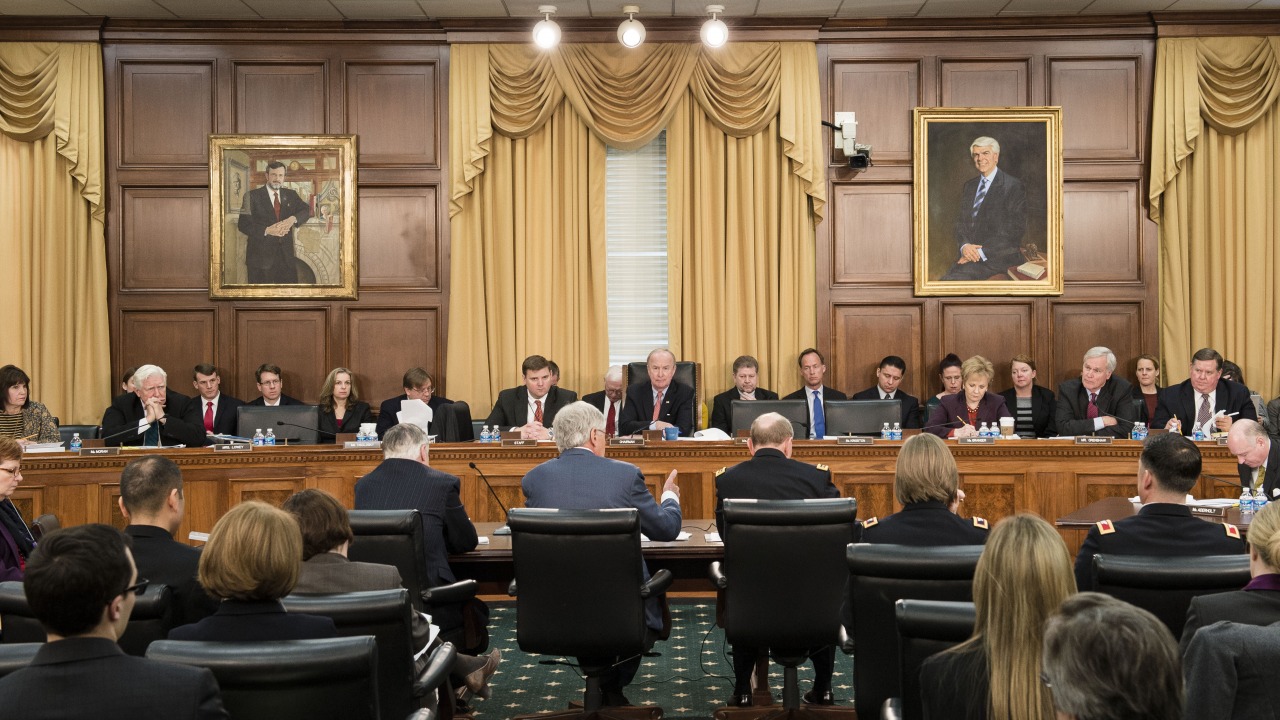ADF updates House subcommittee on First Amendment violations at public universities

Alliance Defending Freedom has submitted written testimony to a House subcommittee for inclusion in a hearing Tuesday on Capitol Hill about First Amendment violations on public university and college campuses. The testimony, provided to the House Judiciary Committee’s Subcommittee on the Constitution and Civil Justice, identifies several recent examples of violations at universities and colleges across the country as well as four common ways university policies restrict free expression.
“Although public universities are supposed to be marketplaces of ideas, they are far too often anything but,” said ADF Legal Counsel Caleb Dalton, one of the authors of the submitted testimony. “A robust exchange of competing ideas and philosophies is essential to liberty and progress, but today’s campuses have transformed the marketplace of ideas into the intellectual vacuum of government intolerance. In the last decade, ADF has assisted hundreds of students and student groups of varying religious and political beliefs who face violations of their First Amendment freedoms on campus. Our current and recent cases illustrate the breadth of the constitutional crisis students face.”
The testimony points to current examples of students arrested for distributing copies of the Constitution on campus, faculty members organizing people to link arms in an attempt to stop a free speech event while administrators ordered police not to intervene, and students being limited to tiny speech zones—and even forbidden from sharing their faith if another student complained. These cases in Michigan, California, Georgia, New York, North Carolina, Wisconsin, and Iowa are just a few recent examples of cases that ADF is litigating on behalf of students or student groups whose First Amendment freedoms have been disregarded.
As the testimony explains, the four most common university policies that unconstitutionally restrict free expression or the ability of students to freely associate with one another based on shared beliefs are as follows:
- So-called “speech zones,” which restrict constitutionally protected free speech to tiny portions of a campus that are frequently not well travelled.
- Vague harassment and non-discrimination policies that are so ambiguous that they censor expression that the First Amendment protects.
- Granting unlimited power to administrators to suppress or favor speech through, for example, the assessment of “security fees” for “controversial speakers,” the denial of recognition to student organizations with viewpoints that administrators don’t prefer, or distributing mandatory student fees primarily to favored groups.
- Limiting equal access and free association by preventing some student groups from associating around shared beliefs and choosing only leaders and spokespersons who share those convictions.
“Today’s college students will be tomorrow’s legislators, judges, commissioners, and voters,” said ADF Senior Counsel Casey Mattox, director of the ADF Center for Academic Freedom. “That’s why it’s so important that public universities model the First Amendment values they are supposed to be teaching to students, and why it should disturb everyone when many colleges and universities fail to defend these values. We commend the subcommittee for the attention it is paying to this issue.”